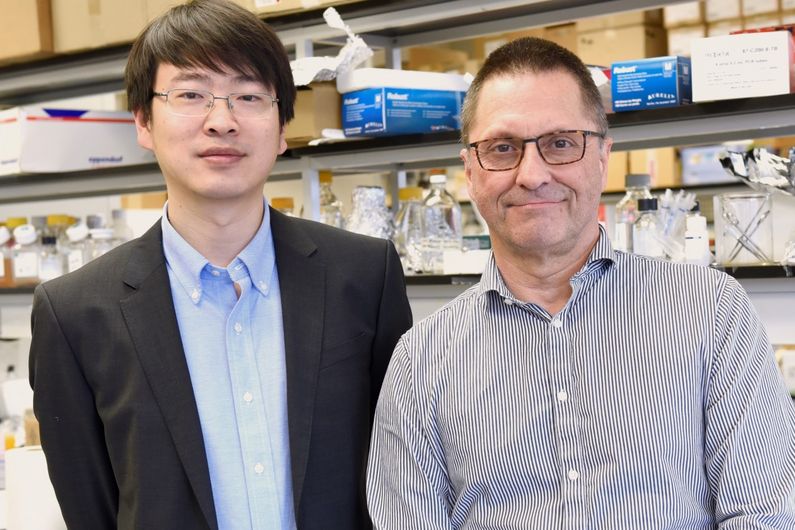"Scrambled" cells fix themselves
- Salle de presse
01/28/2020
- UdeMNouvelles
In the human body, cells shield themselves from disease-causing microbes by scrambling their lipids into liquids, according to new research by an international team headed by IRCM and UdeM.
Human cells have a defense mechanism that protects them from microbial attacks, a Canadian-led team of international researchers has discovered.
When microbes enter our body, they liberate toxins that can damage cells by poking holes in the external cell layer. To defend themselves from the intrusion, cells scramble their membrane fat (lipid) into a more liquid form that allows them to fix the holes, the research team found.
Those repairs prevent the cells from breaking up and dying.
Led by André Veillette, an Université de Montréal medical professor and researcher at the Montreal Clinical Research Institute (IRCM), the discovery was recently published in Cell Reports.
‘’Our body is very clever”, said Veillette. “Some microbes cause diseases by punching holes in the external layer of cells and killing these cells. But our body has the ability to repair these holes. We have identified a molecule, known as TMEM16F, that can repair the holes and prevent the cells from dying.”
The researchers hope that by stimulating the scrambling of cell fat with new drugs, they may help to protect humans from some microbes such as listeria, which causes severe diarrhea, and streptococcus, which can trigger destruction of blood cells.
About the IRCM
Founded in 1967, the Institut de recherches cliniques de Montréal (IRCM) / Montreal Clinical Research Institute is a non-profit organization that conducts fundamental and clinical biomedical research in addition to training high-level young scientists. With its cutting-edge technology facilities, the Institute brings together 33 research teams working in cancer, immunology, neuroscience, cardiovascular and metabolic diseases, systems biology and medicinal chemistry. The IRCM also operates a research clinic specialized in hypertension, cholesterol, diabetes and cystic fibrosis, as well as a research centre on rare and genetic diseases in adults. The IRCM is affiliated with Université de Montréal and associated with McGill University. Its clinic is affiliated with the Centre hospitalier de l’Université de Montréal (CHUM). The IRCM is supported by the Ministère de l’Économie, de la Science et de l’Innovation (Quebec Department of Economy, Science and Innovation).
Media contact
-
Carolyne Lord
IRCM
Tel: 514 987-5535 -
Jeff Heinrich
Université de Montréal
Tel: 514 343-7593













